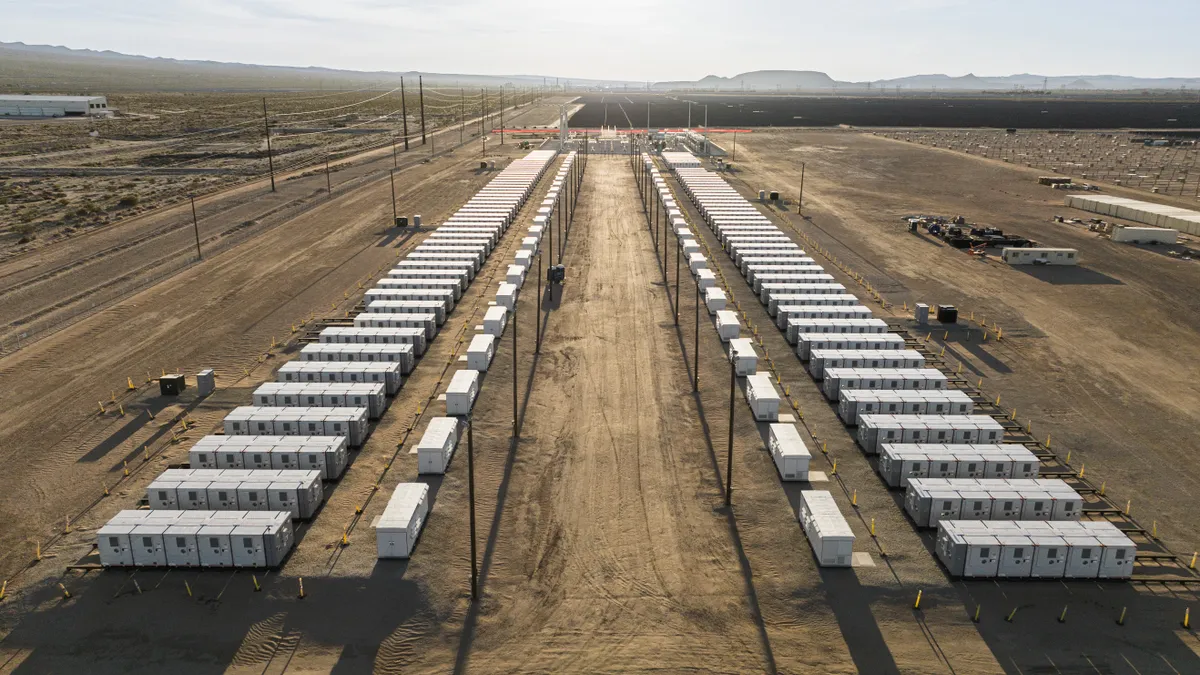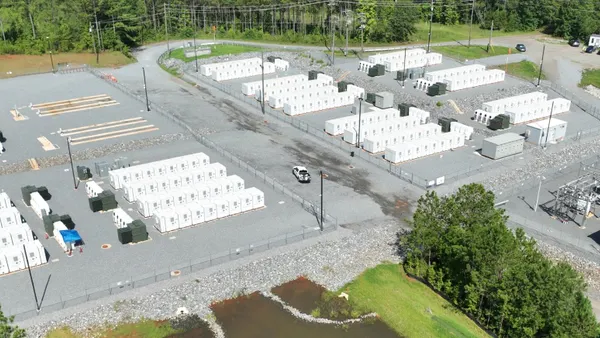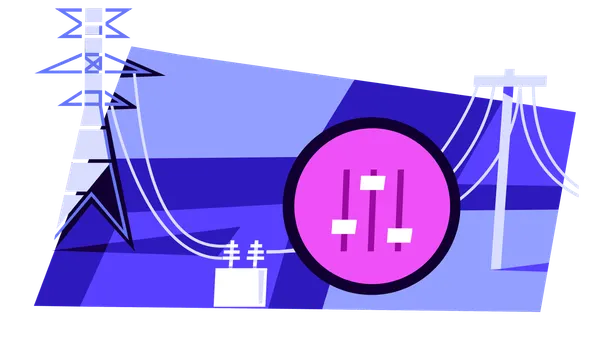Dive Brief:
- The Public Utility Commission of Texas on Thursday delayed a vote to finalize new battery rules for the Electric Reliability Council of Texas market over concerns they are “discriminatory” and “burdensome” and will slow the development of much-needed resources.
- ERCOT’s board of directors in October unanimously approved NPRR 1186, requiring batteries to maintain a certain state of charge, or SOC, depending on which ancillary services they are providing. But there are penalties associated with noncompliance whereas gas or coal plants would not face similar risks, argued Commissioner Jimmy Glotfelty. The PUCT must give final approval to the new rule.
- “ERCOT is trying to make batteries look like and act like coal plants,” Glotfelty charged in a memo filed ahead of Thursday’s commission meeting. Market officials responded that batteries are akin to a “spare tire” for Texas’ energy system, and the grid operator must know whether there is air in the tire.
Dive Insight:
“It's kind of like if you're driving across West Texas, down a hot dusty road, and you have a flat. That's too late to figure out if your spare tire has air in it,” Dan Woodfin, ERCOT’s vice president of system operations, said at Thursday’s open meeting.
ERCOT adopted SOC requirements last winter that were developed through updates to its business practices, a process that is non-binding. NPRR 1186 would adjust those informal rules and make them binding, including penalties of up to $25,000 per violation.
Grid officials say they need to know that battery resources will be available if called on by the market. But Glotfelty and others noted that gas and coal plants don’t face the same requirements regarding their real-time state of fuel availability. And it is possible for a storage operator to be penalized even if they deliver energy when called on, if their SOC does not meet ERCOT requirements.
“It's totally discriminatory against batteries, the most flexible resource that we have on our system today, and one that will likely get us through the cold winter,” Glotfelty said. “We should be able to understand the benefits of these flexible resources without having penalty structures that are disproportionately challenging to that resource.”
NPRR 1186 would be the only ERCOT protocol to penalize a generator for bidding wrong, Glotfelty said. “Not a performance penalty, but a bidding penalty.”
Glotfelty was not the only commissioner to express reservations.
“I know that this is a new technology and I'm sympathetic to ERCOT with respect to accommodating a new technology that has unique characteristics,” Commissioner Lori Cobos said. “But on the flip side, we're also getting tremendous value from storage facilities at a time when we have really no other dispatchable generation resources coming onto the system.”
Cobos said ERCOT anticipates about 1,000 MW of gas generation coming online over the next “few years,” versus about 8,000 MW of battery resources. And this is at a time when the state’s peak electricity demand is rapidly rising.
ERCOT has seen peak load grow by about 5,000 MW from summer 2022 to 2023, Cobos said, roughly a 6.7% increase.
But in conversations with storage providers, Cobos said she has heard them say NPRR 1186 will “lessen our participation in ancillary services, and especially our investment decisions” for four-hour duration batteries, which she said ERCOT will need to maintain reliability.
Woodfin agreed with Cobos, noting “there are a lot of batteries in the queue ... and we want to encourage them.” But ERCOT also wants to ensure batteries that have been scheduled to provide a service can actually show up when needed, he said.
But according to Glotfelty, NPRR 1186 would increase non-compliance penalties on batteries relative to other resources, making the rule discriminatory. “Other resources are only penalized AFTER they fail to deliver as committed, but the SOC provisions would penalize preemptively BEFORE any actual failure to deliver,” his memo said.
Batteries are already helping keep the ERCOT system stable. On Sept. 6, the state’s grid operator declared an Energy Emergency Alert 2, allowing it to bring all available generation online. Batteries supplied almost 2,200 MW.
“In a nutshell, there's no evidence that this is needed or solves an actual problem in the market to enhance reliability,” Glotfelty said Thursday. “There have been no reliability problems from batteries.”
The PUCT could vote on NPRR 1186 at the Dec. 14 open meeting.















